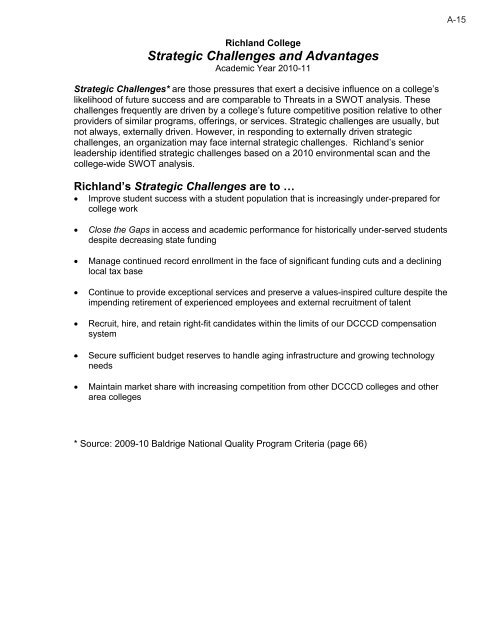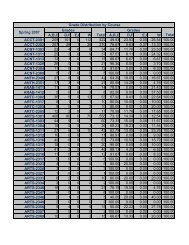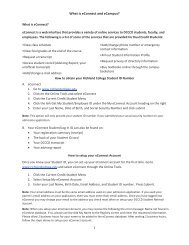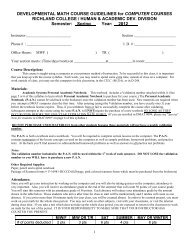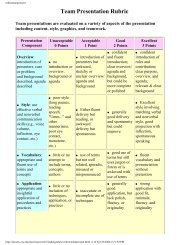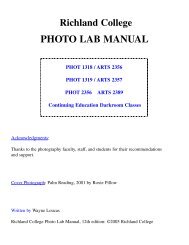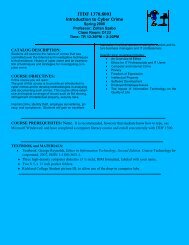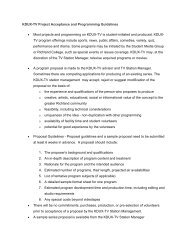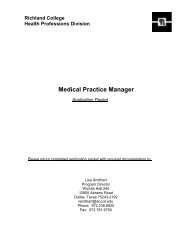End of Year Report - Richland College
End of Year Report - Richland College
End of Year Report - Richland College
Create successful ePaper yourself
Turn your PDF publications into a flip-book with our unique Google optimized e-Paper software.
2010-11 Strategic Challenges and Advantages<br />
A-15<br />
<strong>Richland</strong> <strong>College</strong><br />
Strategic Challenges and Advantages<br />
Academic <strong>Year</strong> 2010-11<br />
Strategic Challenges* are those pressures that exert a decisive influence on a college’s<br />
likelihood <strong>of</strong> future success and are comparable to Threats in a SWOT analysis. These<br />
challenges frequently are driven by a college’s future competitive position relative to other<br />
providers <strong>of</strong> similar programs, <strong>of</strong>ferings, or services. Strategic challenges are usually, but<br />
not always, externally driven. However, in responding to externally driven strategic<br />
challenges, an organization may face internal strategic challenges. <strong>Richland</strong>’s senior<br />
leadership identified strategic challenges based on a 2010 environmental scan and the<br />
college-wide SWOT analysis.<br />
<strong>Richland</strong>’s Strategic Challenges are to …<br />
• Improve student success with a student population that is increasingly under-prepared for<br />
college work<br />
• Close the Gaps in access and academic performance for historically under-served students<br />
despite decreasing state funding<br />
• Manage continued record enrollment in the face <strong>of</strong> significant funding cuts and a declining<br />
local tax base<br />
• Continue to provide exceptional services and preserve a values-inspired culture despite the<br />
impending retirement <strong>of</strong> experienced employees and external recruitment <strong>of</strong> talent<br />
• Recruit, hire, and retain right-fit candidates within the limits <strong>of</strong> our DCCCD compensation<br />
system<br />
• Secure sufficient budget reserves to handle aging infrastructure and growing technology<br />
needs<br />
• Maintain market share with increasing competition from other DCCCD colleges and other<br />
area colleges<br />
* Source: 2009-10 Baldrige National Quality Program Criteria (page 66)<br />
Prepared by the OPRIE


